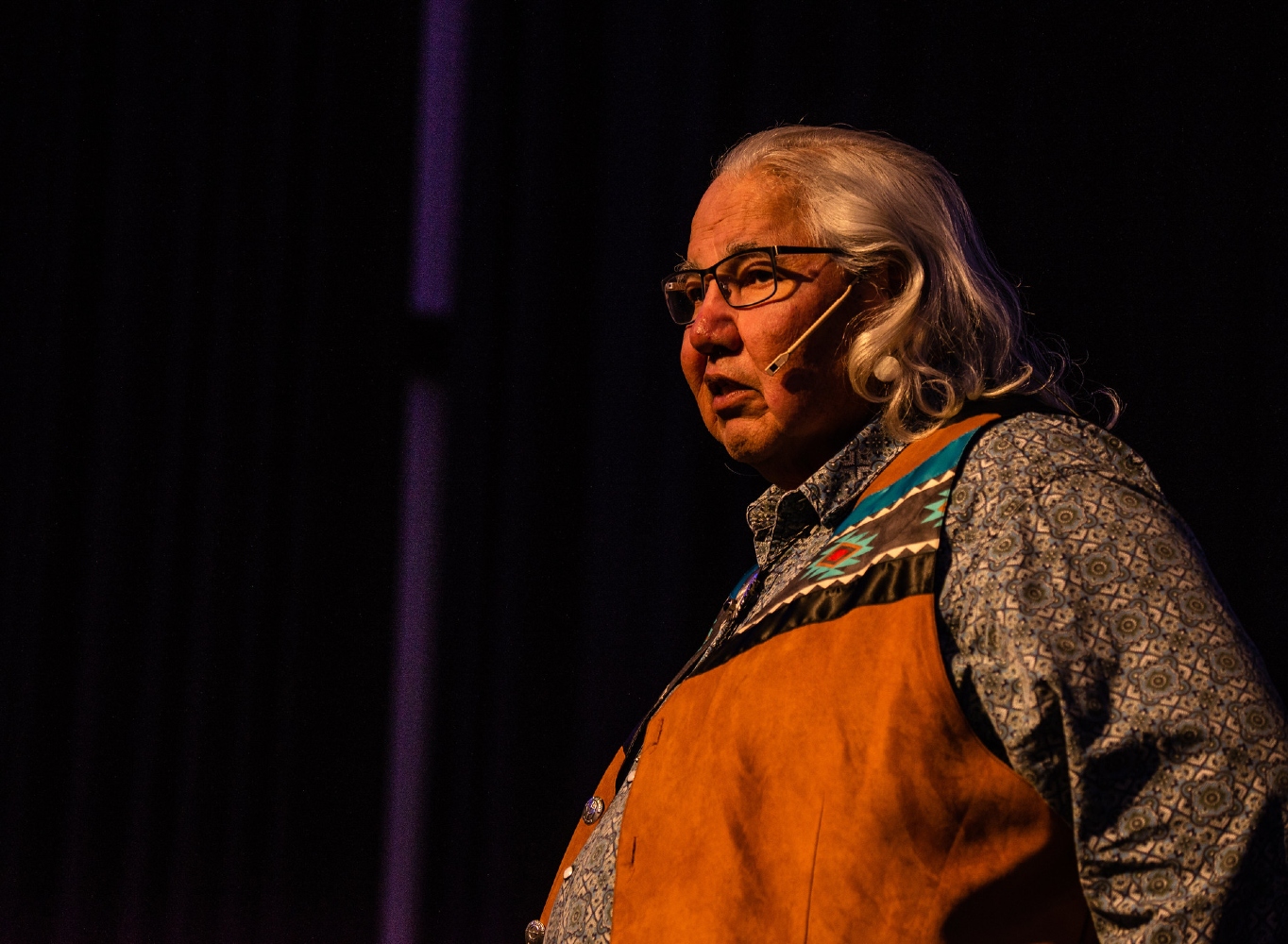After the Pope’s apology this week, Indigenous leaders across the country are calling for him to go further and repeal the Doctrine of Discovery.
On Monday, Pope Francis arrived in Maskwacis, Alta. to apologize for members of the Catholic Church who co-operated with the residential school system. But many say the speech was not enough, calling on the Pope to renounce the doctrine used to justify the colonial dispossession of Indigenous peoples.
According to a 2018 Assembly of First Nations report on the Doctrine of Discovery, the concept originates from a series of papal bulls — official documents issued by the Pope — from the 1400s. The report describes the doctrine as “the very foundation of genocide,” fuelling practices that have led to present-day laws and policies.
Murray Sinclair, former senator and chair of the Truth and Reconciliation Commission of Canada, wrote in a statement Tuesday that the Pope’s apology “has left a deep hole in the acknowledgment of the full role of the Church in the residential school system.”
While recognizing the importance of the historic apology for many survivors, Sinclair highlighted that the Church “was a lead co-author” in one of Canada’s darkest chapters in history.
#papalapology My thoughts are with Survivors who heard the apology from the Pope yesterday. But despite this historic apology, the Holy Father’s statement ignores the full role of the Church in the Residential School system. pic.twitter.com/BU5RGYq0ue
— Murray Sinclair (@Sensincmurr) July 26, 2022
“Driven by the Doctrine of Discovery and other Church beliefs and doctrines, Catholic leaders not only enabled the government of Canada, but pushed it even further in its work to commit cultural genocide of Indigenous peoples,” he added.
Sinclair also pointed to the Pope’s failure to repeal the doctrine. “The Pope and the Church remain silent on the most problematic tenets of its belief system: that Indigenous peoples in Canada and around the world should not have the right to practice their own faith, cultures and traditions,” he wrote.
More on Broadview:
- As a residential school survivor, the Pope’s apology made me angry
- Ojibwe translator for Pope visit on what Catholic Church needs to do next
- United Church votes to support creation of a self-determining Indigenous church
Cindy Blackstock, executive director of the First Nations Child and Family Caring Society of Canada, posted a post-apology “to-do” list addressed to the Pope, the Catholic Church and the Holy See.
The first item calls on the Pope to publicly rescind the 1493 papal bull that supported the Doctrine of Discovery. Blackstock wrote that the document, Inter Caetera, was used to rationalize “the unjust taking of Indigenous lands worldwide and continues to be cited by courts and government to legitimize colonial land title.”
The most important time is the day after the apology so here is my “To Do” list for the Catholic Church, the Holy See and @Pontifex pic.twitter.com/dkcQVxvnmt
— Cindy Blackstock (@cblackst) July 25, 2022
Blackstock proposed seven other actions, including conducting an independent review to ensure the Church provides all residential school records to organizations authorized by Indigenous peoples. Another item describes the repatriation of stolen land, cultural artifacts and human remains.
“The First Nations, Métis and Inuit children who attended residential schools and suffered so deeply and those who died there deserve this and more,” she wrote.
The Haudenosaunee External Relations Committee issued a press release that similarly called for the revocation of the papal bulls that established the Doctrine of Discovery. The press release describes the Haudenosaunee’s unsuccessful decades-long campaign to spur the Vatican to action.
“While the Pope is here to apologize for its abuses… We are here to address the root cause of the genocide that was carried out.”
The Haudeonsaunee Confederacy sent a delegation to Rome in 2016, 2018 & now to Ottawa to ask to revoke these Papal Bulls. The time has come. pic.twitter.com/5ckUDBIbqe
— Alicia Elliott (@WordsandGuitar) July 27, 2022
“Each time, no conclusion was reached, or response provided by the Church,” the press release states. “We shall however continue our campaign until a real truth is accepted and publicly shared — that is: the papal bulls of discovery were the template, the blueprint, that colonizing nations have used toward the suffering and dispossession of Indigenous peoples’ rights and dignity over the last 500 years.”
Hayden King, executive director of the Indigenous-led Yellowhead Institute research centre, posted a Twitter thread in which he rejected claims of the doctrine’s insignificance.
The people saying the Doctrine of Discovery doesn’t matter now are the same who said appealing to the Governor-General won’t work; defenders of a narrow view of colonialism who promote economic development as reconciliation…
— Hayden King (@Hayden_King) July 27, 2022
“When you scratch the surface of the residential school system, you’ll find the Doctrine of Discovery: the legal justification to dehumanize Indigenous people, to steal and murder openly with the support of God,” he wrote.
To King, repealing the doctrine would not undermine Canadian sovereignty. “It would force the recognition — even if symbolic initially — that this has always been our land, rightfully,” he wrote. “Maybe it would even challenge those narrow views of ownership and ‘progress,’ what gets counted as law, how we interpret history and the future.”
***
Tobin Ng is an intern at Broadview.















